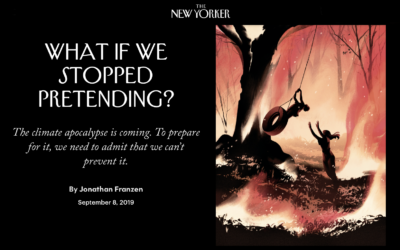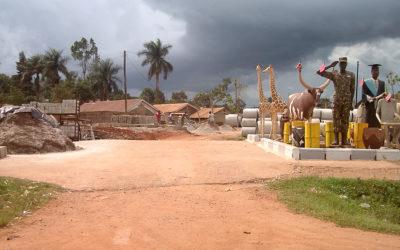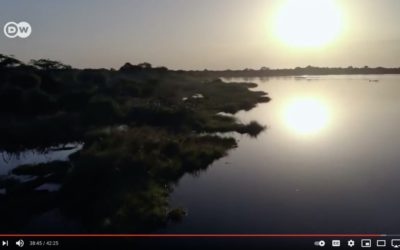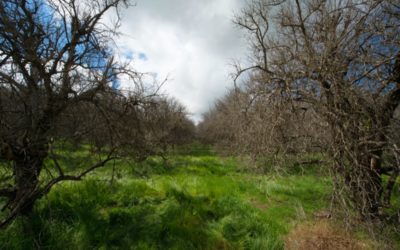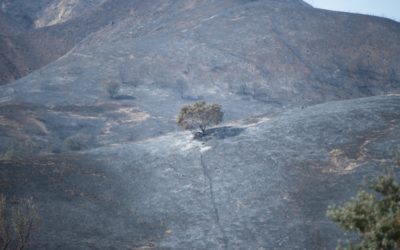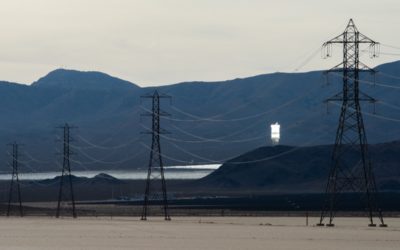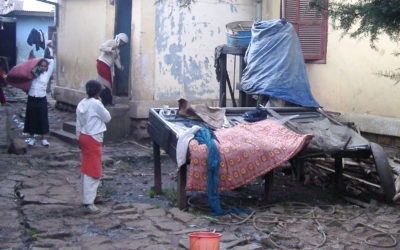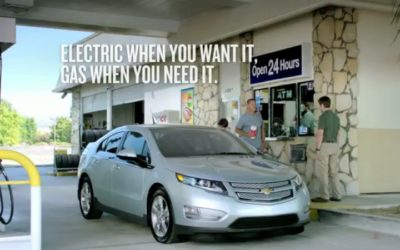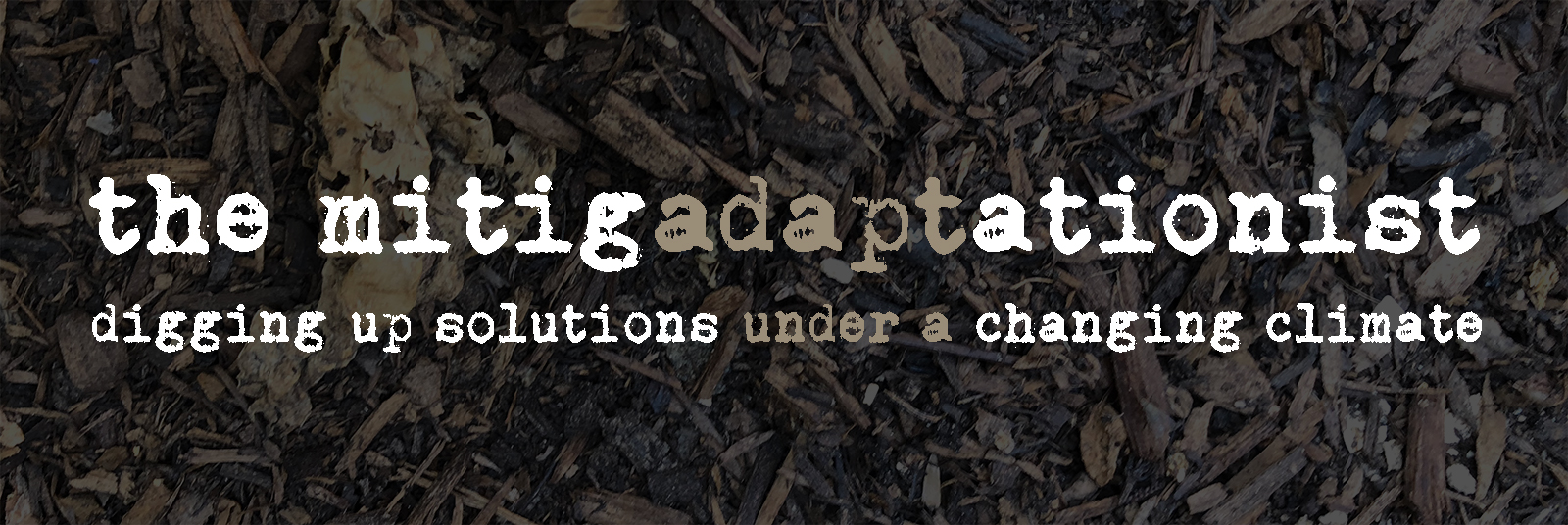
Jonathan Franzen Kicks a Beehive in the New Yorker
It’s fascinating to watch what happens when someone suggests we adapt to climate change “instead of” fighting it, especially when that person is one of this beleaguered globe’s Reigning People of Letters.
The RPOL in this case is Corrections author Jonathan Franzen, whose essay “What If We Stopped Pretending” ….
The Future Today: Ethiopians Planted 353,633,660 Trees… in a Single Day
Shouldn’t all the headlines look like that? The people of Ethiopia planted 353 million trees in 12 hours on July 29. The kind of story that makes you feel like there isn’t a problem in the world that can’t be solved… doesn’t it.
Forget, for a moment, the heartbreaking fires raging from Bolivia to Siberia, forget this month being on track to become the hottest July in recorded history — perhaps the hottest month in recorded history. Instead, turn your eyes again toward a country whose peace deal with neighboring Eritrea is still fresh in the world’s mind. Ethiopia is restoring its lost forests.
Movie Night: “Fleeing Climate Change” (DW Documentary)
Up for a Friday-night movie? Up for a Friday-night movie?
Germany’s DW Documentary presents a concise half-feature on the “climate exodus” from the Sahel Zone in Central Africa, Indonesia, and the Russian Tundra: a primer on climate migration in case you need motivation.
End of the Drought: Central Valley Tree-velogue
According to yesterday's monthly drought report from NOAA, all the rain and snow these last few years have finally done the trick. "As of March 12, the entire state of California was drought-free ... for the first time in eight years," the agency said, to a largely quiet public. How are such announcements not met with ticker-tape parades? Isn't...
Lessons on Resilience from the Oaks
Looking back at the “fire season” which only now seems to have “ended,” I’m remembering a trip I took out to Las Virgines deep in the San Fernando Valley near Calabasas late last year, while the Woolsey Fire was still raging in all directions. Looking around, the oaks were the obvious subject of the story of burned hillsides.
As I wrote a journalist friend at the time, on many hillsides: “the oaks sit alone in a newly desolate landscape. Their survival seems unlikely, but what few humans — even local ones — seem to know is that if healthy, the California live oak is resilient to fire….
“The Forensics Have Spoken, and We Are to Blame.”
We spent much of August at Penn Cove, on Whidbey Island, Washington. This will be remembered as the year a blanket of smoke moved in on August 14 and did not leave. The sun turned into an orange moonish ball, the horizons disappeared.
On August 24, as fires still burned in California, Oregon, Idaho, Washington, and British Columbia, Gavin Schmidt, the director of the NASA Goddard Institute for Space Studies, wrote an opinion article in the New York Times: “How Scientists Cracked the Climate Change Case.” By all accounts, such an article is not something that should have been necessary….
Adaptation: It’s a Mouthful
ADAPTATION.
A bad word, a stigma. Still, we ought to try it out. Adaptation. Give it a chance. Adaptation. Pull it on, one limb at a time, four limbs, like new coveralls. A-dap-ta-tion….
It’s a bad word, profane, vile, heretical….
Yellowcaps?
On Saturday I called them “disturbing, unpretty yellowcaps.”
I get why they are disturbing. Our eyes are accustomed to seeing a gentle blueish white in the highlights off the top of the sea. The yellow color is wrong.
But is it “unpretty”?
If we adapt, will our eyes eventually adjust? Will our children’s children’s midwestern inlaws come to the coast in November for the glittering yellowcap season? …
Sand and Ash
This is one of those days of public emergency where nothing’s really stopping you from taking a walk on the beach. Nothing logistical, anyway, as long as you don’t want to drive to Malibu. And as long as you don’t mind breathing air heavy with smoke and ash, and as long as you don’t object to sheet-white skies with oyster-shell highlights, and aren’t turned off by reflections in the water roughly the color of butter, and disturbing, unpretty yellowcaps spotting the surf.
Sometimes when there’s a forest fire nearby, you get an entire day of golden twilight color, and spectacular sunsets thanks to infinite reflections of sunlight off airborne particulate matter.
This is not one of those days. The air contains way too many dead oak trees and scrub bushes to allow beautiful light to glimmer between clouds of smoke.
Don’t look for a silver lining of any kind because there isn’t one.
The Ivanpah Solar Power Facility Is Home in the Mojave
The Ivanpah Solar Power Facility is shocking. If you’re heading from Los Angeles to Las Vegas on I-15, the new sustainable energy plant might give you whiplash as you complete your descent of the graceful desert mountain pass that cuts between Clark Mountain and Kokoweef Peak.
The pass is no more than five miles long in both ascent and descent, but its erosion patterns, loose stones, rough scrub, and playful dance of sky and hill make for satisfying desert drama as you drive east. In the days before modern engines, the little pass was enough to overheat radiators finally exhausted by the long Mojave miles. As energy-related surprises go, Ivanpah is far more welcome: as the last stretch of descent gracefully bends toward the left, the plant’s three boilers and thousands of mirrors peek through the hills and then spread out in the distance: three inexplicable circular mirages of inexplicable white light on an otherwise uniform brown desert floor….
Leave the Plunger Alone, and Let Your Clover Grow
In the classic Looney Tunes gag, Wile E. Coyote has bought his classic ACME detonator and deployed some TNT to do the Road Runner in. As the bird approaches, the coyote hits the plunger. The plunger jams in typical form, and the harder the Coyote fights it, the stronger it resists. He jumps on it, smashes it into the ground, strains as much as possible. But as soon as he abandons it to its own will, it gently detonates on its own —just as the canine himself reaches the target. The gag works, of course, because we all know how unproductive, and sometimes even counter-productive, a bad plan can be.
In the case of climate change, even some of the best plans we have seem prohibitively, impossibly, difficult. We believe that some of the best ideas to address climate change are yet to be had, and many that rise to the top will be the simplest of all. It can’t all be “low-hanging fruit,” but the most impact will be had by good ideas that recognize points of resistance and predict opportunities for mass-uptake and for scale.
What If Electric Car Journalism Succeeded?
Just like most early electric cars, media coverage of the EV industry just looks, er… different.
The cover article in this week’s Newsweek is a case in point. “What If Elon Musk Succeeds? Tesla, SpaceX Founder Wants to Transform Technology—and Put Humans out of Work.” The writer, the usually thoughtful David H. Freedman, opens the article with eight paragraphs focusing on the manic tweeting and general eccentricity of Tesla’s CEO, Elon Musk — only to then turn around and say, “But if you’re focusing on Musk’s ‘bad manners,’ as he called his meltdown, you’re missing the point.”
Leaving aside the weirdly transparent exercise in projection, it’s what comes next that’s so strange:
Mobile Phones Leapfrogged Landlines. Will Off-grid Renewable Energy Do the Same to Coal Plants & Power Lines?
In the first years of this century, when inexpensive cell phones spread low-cost, ubiquitous communications around the world, another amazing thing happened: the rationale for wiring the developing world for telephones vanished. Cellular technology rapidly leapfrogged old-timey telecom’s slow-motion efforts to wire remote outposts (in Africa, for instance: 2004, 2009, Pew 2015), providing phone, and later Internet, banking, and other services where they had never existed before. No matter what you think of resulting social changes, nobody mourned the utility poles, wire, labor, and time not spent on a telephone grid….
If You Can Afford a Car, You Can Afford This EV
The Mitigaptationist is no “influencer,” but we’re not above pitching a product. In fact, we now present a full-throated endorsement of our own car, the second-generation Chevy Volt. We’ll do it here on economic grounds, and leave green-ness, technical quality, safety, joy to drive, and other virtues to better qualified reviewers (first-gen 2011 “Car of the Year,” second-gen 2016). To us, if you have to drive a car in the year 2018, while also caring about the impact of doing so, the Chevy Volt is the car to drive….
